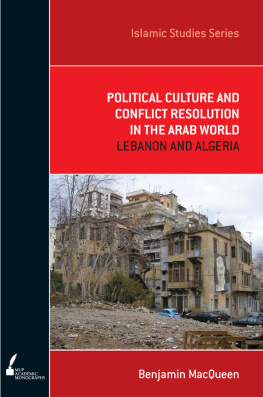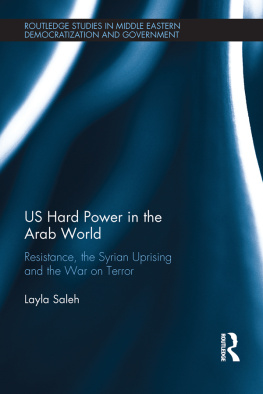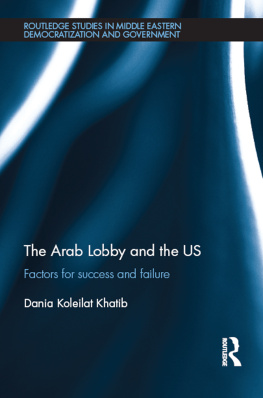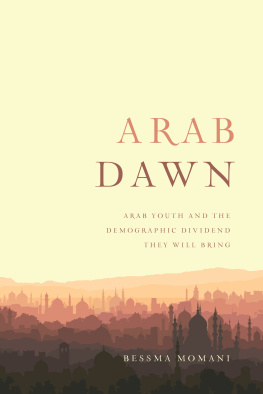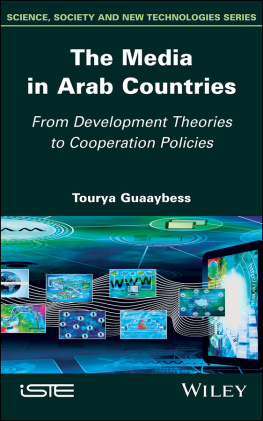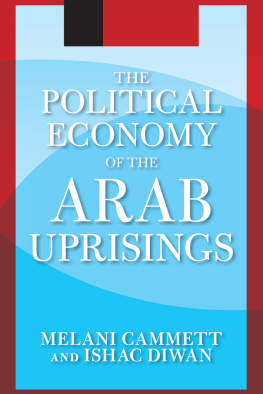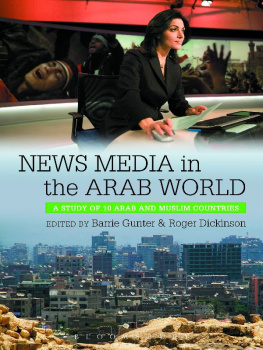All images are in the public domain.
Omar al-Ghazzi is an assistant professor at the Department of Media and Communications, the London School of Economics and Political Science (LSE). Al-Ghazzi is interested in the role of media and communication in political conflict, activism and collective memory, with a focus on the Middle East and North Africa. Before joining LSE, he was a lecturer (assistant professor) at the Department of Journalism Studies, University of Sheffield. Al-Ghazzis research has appeared in journals such as Communication Theory and Media, Culture & Society and has been recognized by the International Communication Association. A former Fulbright scholar, al-Ghazzi comes from a journalism background. He has previously worked as a reporter for Al-Hayat Arabic daily and as a media analyst at BBC Monitoring. He completed his PhD at the Annenberg School for Communication, University of Pennsylvania.
Atef Alshaer is a lecturer in Arabic Studies at the University of Westminster. He first came to London after completing his Bachelors degree in English Language and Literature at the University of Birzeit in Palestine. He then went on to obtain a Masters degree and a PhD from the Faculty of Languages and Cultures at the School of Oriental and African Studies, University of London and taught there until 2014. Alshaer has written several research papers and monographs, including his book, Poetry and Politics in the Modern Arab World (2016) and an edited volume, Love and Poetry in the Middle East (2016).
Ramy M.K. Aly is an assistant professor of Anthropology at the American University in Cairo. He is the author of Becoming Arab in London: Performativity and the Undoing of Identity which was published in 2015 with Pluto Press as part of their celebrated Anthropology, Culture and Society Series. The book is the first ethnographic account of gender, race and class practices among British-born-and-raised Arabs in London and attempts to provide an account of the everyday experiences and expressions of Arabness in the British capital. Alys research engages and bridges the anthropology of ethnicity, migration and diaspora, media and cultural studies, and youth cultures, militarism and economic anthropology.
Abdelaziz Boumeshouli is a Moroccan philosopher. He has written more than twenty books, all in the Arabic language, including Poetry and Interpretation (1998), The Philosophical Principles of the End of Ethics Theory (2001), Moroccan Philosophy, The Question of Being and the Future (2007), Being and Loss, Thinking about Contemporary Times (2007), On the Bodys Experience (2011) and Philosophy and the Arab Uprisings: New Philosophical Experiences in the Arab World.
Joe F. Khalil is an associate professor in residence at Northwestern University in Qatar. He is engaged in researching youth cultures, alternative media and media industries in the Arab world. He engaged in professional work and research in more than ten countries, including the United States, Italy, Saudi Arabia, Lebanon and Tunisia. Khalil teaches courses in global communication and media studies. He authored a policy monograph on Arab satellite entertainment television and public diplomacy and is also co-author of Arab Television Industries. His publications address a number of issues related to youth in a rapidly changing global media landscape.
Helena Nassif is a social researcher of culture. She is currently the managing director of Culture Resource, an Arab regional organization working in arts and culture. She received her PhD in Media Studies from the University of Westminster in 2015. Her thesis, titled Home under Siege: Bab al-Hara, Televising Morality and Everyday Life in the Levant, ethnographically examines the construction and reception of televisual cultural, moral and spatial telos. She was a visiting fellow researcher at the University of Marburg and at the Orient Institute in Beirut. She is working on a book project that explores the role of digital memory and political emotions in oppositional cultures in the Arab East.
Tarik Sabry is a reader in Media and Communication Theory at the University of Westminster, where he is also Director of the Arab Media Centre. Sabry is author of Cultural Encounters in the Arab World: On Media, the Modern and the Everyday (2010), editor of Arab Cultural Studies: Mapping the Field (2012) and co-editor with Layal Ftouni of Arab Subcultures: Transformations in Theory and Practice (2017). He is also co-founder and co-editor of the Middle East Journal of Culture and Communication. Sabrys research interests lie at intersections between media and philosophy, migration and diasporic studies, audiences, popular culture and intellectual Arab history.
Helga Tawil-Souri is an associate professor in the departments of Media, Culture, and Communication and Middle Eastern and Islamic Studies at New York University, where she is also Director of the Kevorkian Centre for Near Eastern Studies. Tawil-Souri is a media scholar who works on questions of spatiality, technology and politics in the Middle East and especially Israel/Palestine. Broadly, her work critiques the notion that we live in an increasingly open and borderless world, by analysing how technologies and their infrastructures such as cell phones and the internet are explicitly territorial and political and often impose new forms of borders and controls. She is equally fascinated by how spaces and things that are overtly territorial and political borders, checkpoints and identification cards, for example themselves function in cultural ways. She is the co-editor of Gaza as Metaphor (2016), and author of numerous academic publications. Inspired in part by the chapter she wrote for this volume, she is planning her next research project around a spatial history of turnstiles.
This book was made possible in part by the generous support of the Arab Council for the Social Sciences (www.theacss.org) through its Working Groups Programme on Producing the Public in Arab Societies (201315) with funding provided by the International Development Research Centre (IDRC). Any opinions, findings and conclusions or recommendations expressed in this material are those of the author(s) and do not necessarily reflect the views of the Arab Council for the Social Sciences or the IDRC.
Translations and copy-editing for this book were financially supported by an Internal Scholarly Research Grant from Northwestern University in Qatar.
We are indebted to the members of the media group, without whom this work would have been impossible, and to I.B.Tauris and the Arab Media Centre at the University of Westminster for their continuous and systematic support of the Arab Cultural Studies project.
Tarik Sabry and Joe F. Khalil
In a recent sociological study entitled What are sociologists writing about in North Africa, 20002016?, based on a survey of 3,614 social science books (2,142 in Arabic, 1,330 in French, 83 in English and 13 in other languages), Ait Mansour (2018) and his colleagues at Mohammed V University in Morocco showed how in the three countries of focus Algeria, Morocco and Tunisia the sociology of culture headed the list of social science publications, followed by political science, methodology and the sociology of development. It is important to also note that the increase in publications on political science in the three countries has been exponential since the Arab uprisings of 2010. Taking this studys findings into account, regardless of its small geographical sample, it is important to pose a qualitative question: why is it that the theme of culture has emerged as a key category in social science publications in North Africa? Historiographies of knowledge production elsewhere show a strong dialectic between endogenous and exogenous variables. For example, the reasons why society presented itself as an urgent object of enquiry in post-Second World War German academia, and not long after that in American universities, are suggestive of a web of connections, including the emergences of fascism, communism, Hiroshima, not to mention mass migration from Europe to the United States (see Scannell 2007: 323). Similarly, the emergence of culture as an important category in 1970s and 1980s Britain was not accidental. It was merely the product of the interplay between endogenous and exogenous elements, including a shift from economies of scarcity to economies of abundance, with increase in leisure time being an important factor, the collapse of the British Empire, television and migration from the Commonwealth countries to Britain, added to which we need to emphasize the role of Marxist theory in the democratization of culture as a set of everyday practices. Articulations of culture in British academe, at the time, were dominated by two key readings: a culturalist paradigm that situated the question of culture in ordinary everyday experience, and a structuralist paradigm, according to which experience could not presume itself as a self-validating category, since what determines it is elsewhere and otherwise than what it (experience) thinks it is (Scannell 2007: 201).


